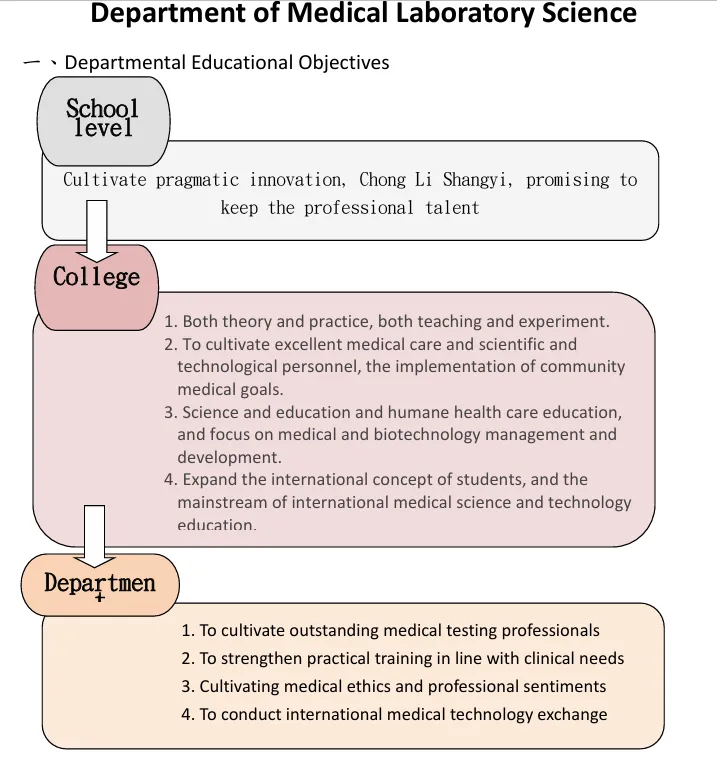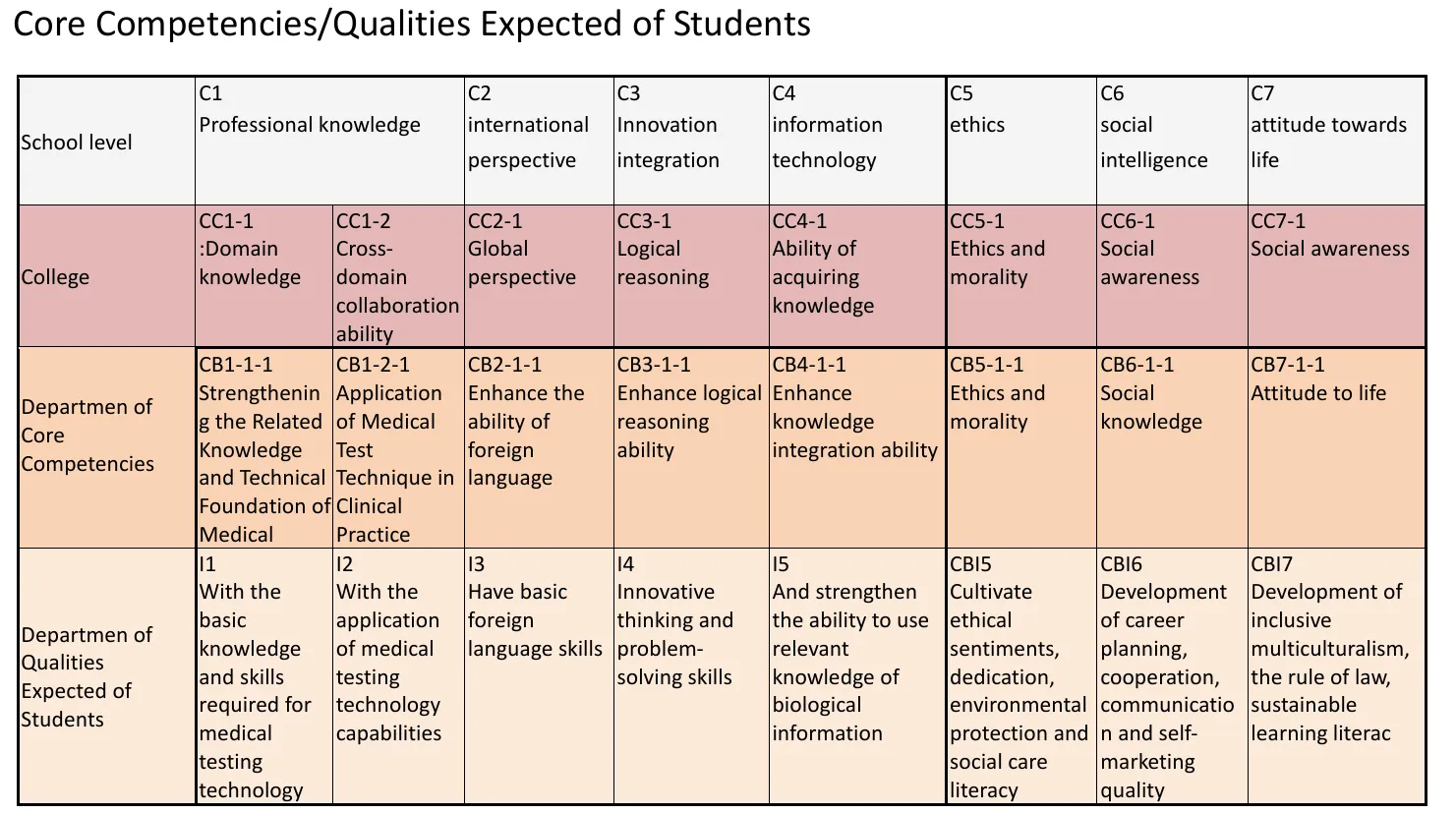Historical Development
Departmental Educational Objectives

Core Competencies/Qualities Expected of Students

Curriculum Planning
The curriculum of the department is structured into four stages: fundamental sciences, basic medical sciences, clinical professional subjects, and clinical internships.
The educational goal of the department is to cultivate medical laboratory science professionals with international competitiveness. The curriculum is broad and diverse, with a focus on core subjects essential for the national medical technologist examination. The medical laboratory departments of multiple hospitals within the E-Da Healthcare System offer rich clinical observation and internship opportunities, ensuring a balance between theoretical knowledge and practical application.
Additionally, the department provides domestic and international industrial internship programs during winter and summer breaks.
Career Prospects for Graduates
Graduates of this department are eligible to take the advanced technical examination for "Medical Technologists" held domestically or internationally. Upon passing the exam, they can obtain a medical technologist license and engage in clinical laboratory work.
Those aspiring to work as medical technologists can be employed in hospital medical laboratories, independent medical laboratories, health examination centers, blood donation centers, and public inspection units under the Ministry of Health and Welfare.
Graduates receive rigorous training in laboratory techniques, equipping them to excel in various biomedical-related laboratory roles, such as forensic science agencies, environmental inspection organizations, teaching and research institutions, biotechnology industries, and medical device companies.
For those wishing to further their education, options include pursuing advanced studies abroad, enrolling in domestic graduate programs, or applying to post-baccalaureate medical schools.
Thus, graduates have excellent prospects for both employment and further education.